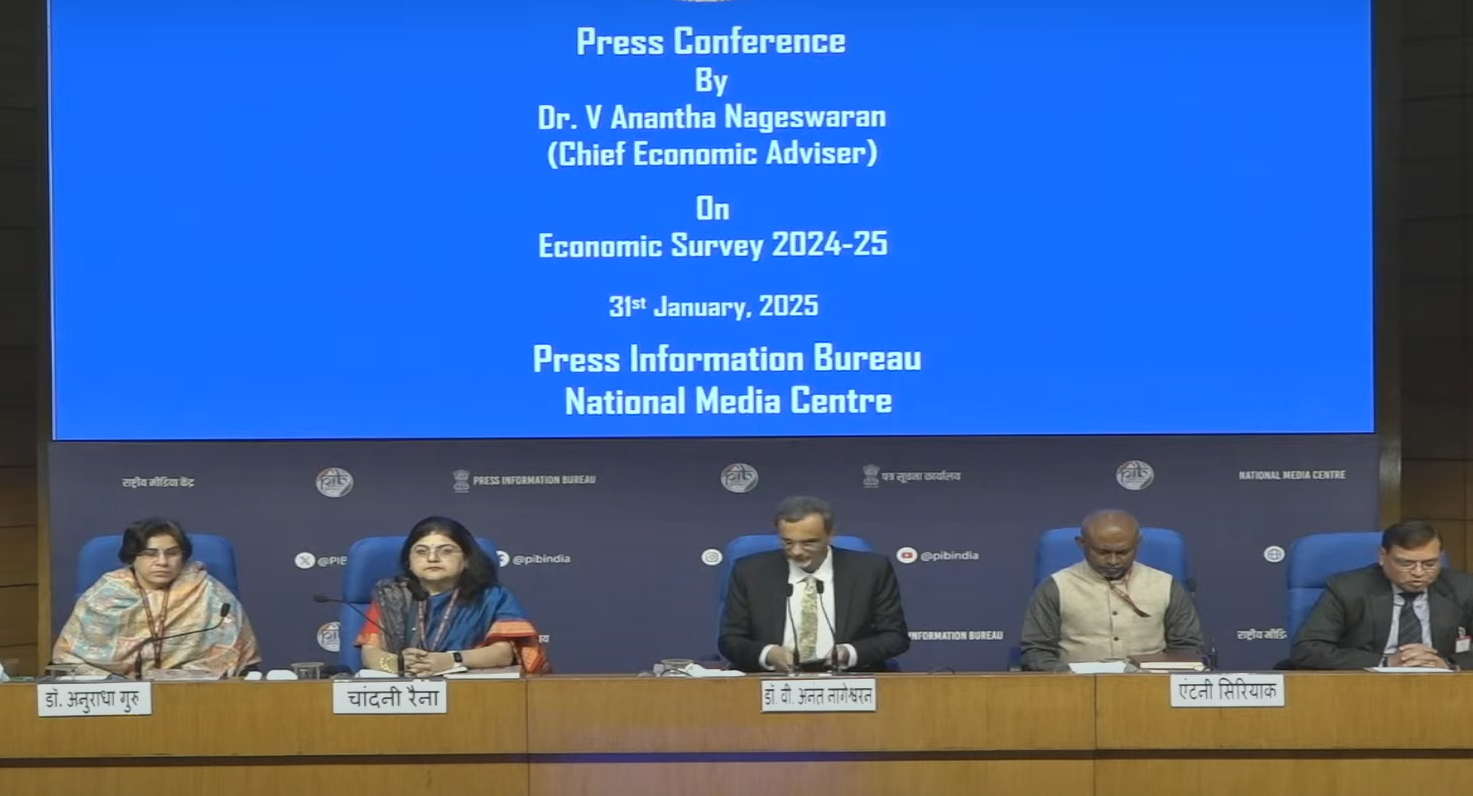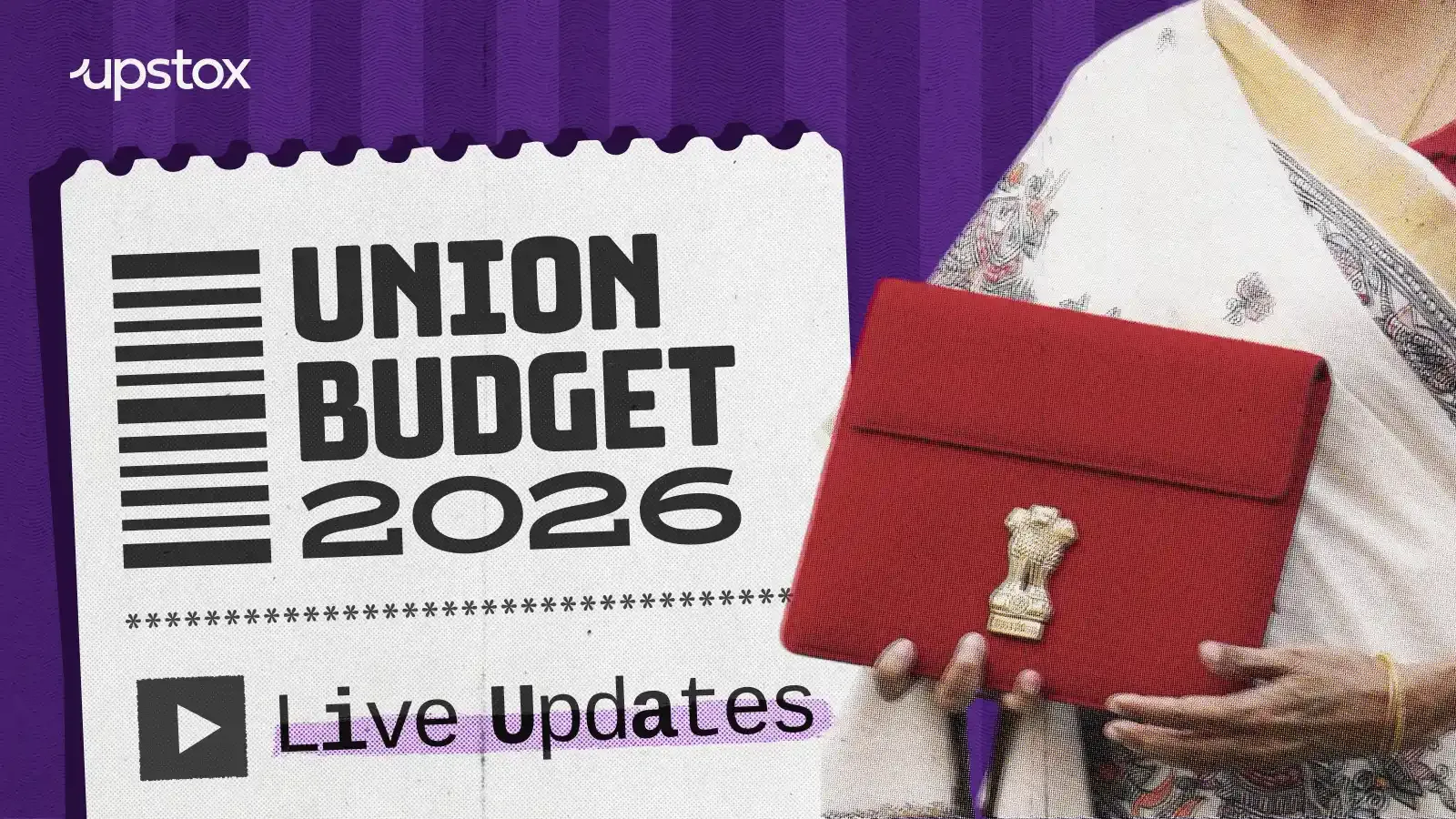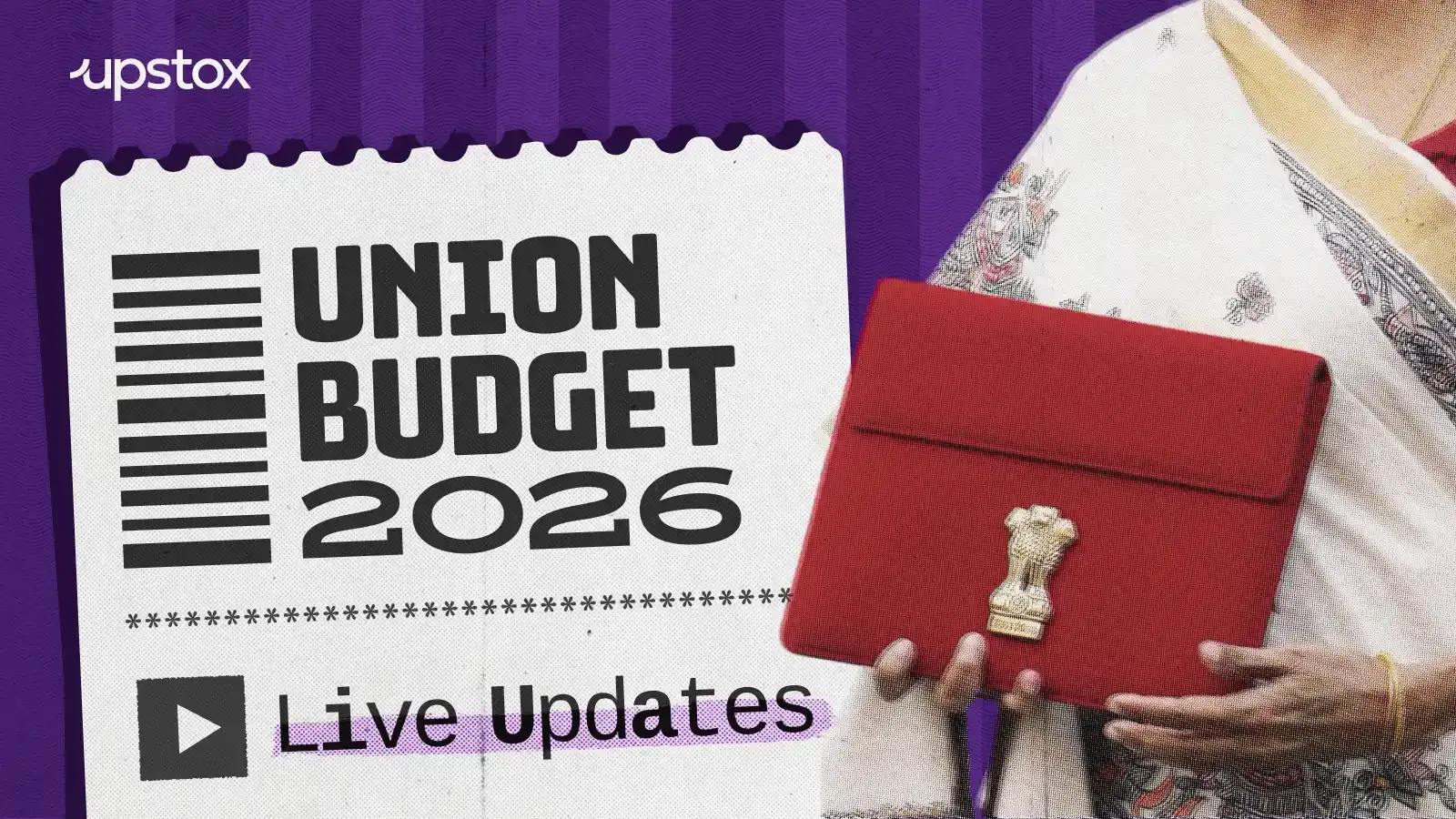Business News
Economic Survey flags risks of excessive financialisation amid market shift: 'Can hurt the economy'
.png)
3 min read | Updated on January 31, 2025, 14:41 IST
SUMMARY
While acknowledging the benefits of financial sector expansion, the Economic Survey 2024-25 warns against excessive financialisation, which could destabilise economic growth.

V. Anantha Nageswaran, Chief Economic Adviser, Government of India, briefing on the key narratives of the Economic Survey 2024-25.
The Economic Survey 2024-25 has warned of emerging risks in the country’s financial sector, highlighting the need for a balanced approach to financial sector growth as the economy shifts towards market-based funding sources.
The survey, tabled in Parliament on Friday, noted that while India’s financial system is undergoing a structural transformation, excessive financialisation could pose risks to economic stability.
"The traditional dominance of banks in providing credit is beginning to decline, and other participants and products in the financial sector increasingly filling this role," the survey said.
While terming the shift 'positive' for a country that aims to become a developed nation by 2047, the report stressed that the financial markets must work in tandem with the banking sector to bridge the capital requirement gap.
"The financial markets must grow in line with, but not faster than, the economy's capital needs and overall economic growth," it said.
The survey cautioned that while financial sector expansion supports economic growth by lowering transaction costs and improving capital allocation, there exists an "inflexion point" beyond which rapid financialisation can harm the real economy.
"Excessive financialisation can hurt the economy. The costs may be particularly high for a low-middle-income country like India," it said.
The report highlighted recent financial innovations such as the Unified Payments Interface (UPI), the Open Credit Enablement Network (OCEN), and the T+1 settlement system, which have eased access to credit. The Unified Lending Interface (ULI), a new initiative by the Reserve Bank of India (RBI), was cited as a potential game-changer for micro, small, and medium enterprises (MSME) financing.
Drawing on lessons from the 2008 global financial crisis, the report warned against unchecked financial sector expansion.
It referred to a study by the Bank for International Settlements (BIS), which found that Ireland's sharp increase in private credit to GDP from 90% in the 1990s to 150% in 2007 reduced productivity growth by 0.5 percentage points. On the other hand, Thailand’s decision to reduce private credit-to-GDP during the Asian financial crisis contributed positively to productivity.
"When the economy reaches a state of ‘over-finance’, the financial sector would compete with the real sector for resources," it said. " This competition for resources is especially seen in the case of skilled labour, which gets absorbed into the financial sector at the cost of the real economy. "
By signing up you agree to Upstox’s Terms & Conditions
About The Author
Next Story


